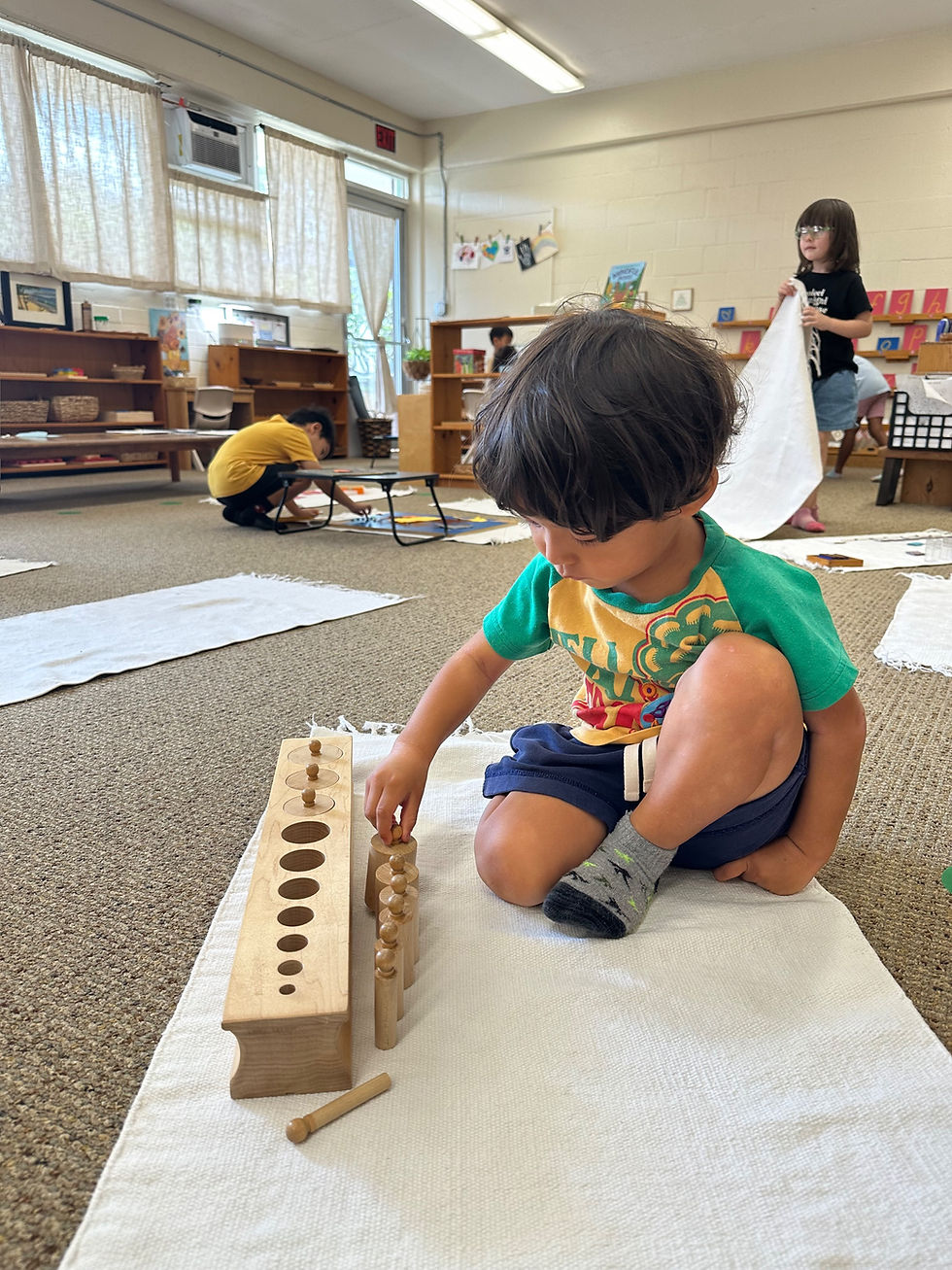Global Citizenship
- Montessori Community School

- Jan 12, 2024
- 2 min read

Montessori education helps children develop the skills necessary to become independent, functioning members of an emerging world community and to help build that community in the future. Global citizenship is, therefore, a foundational tenet in Montessori classrooms.
Global citizenship is the idea that all human beings are a part of a growing world community. It centers on making choices that contribute to making the world a better place. Global citizenship nurtures respect and tolerance for others, allowing students to develop an appreciation for diversity, a sense of empathy, and an openness and acceptance.
EARLY CHILDHOOD
From a very young age, children should begin to understand that they are part of the human species, a member of society, and a citizen of the world. Through a well-developed history and geography curriculum, an awareness of the world is nurtured that allows children to develop a universal understanding and appreciation of all life on earth. Children read books, listen to music, view artifacts, and learn about cultures from all over the world.
Children begin to understand how their actions impact others in their classroom community through basic grace and courtesy lessons. Concepts as simple as learning to put away an activity when they are finished, so another student can use it, helps a child to understand social norms. The classroom teachers regularly model polite behaviors that students should replicate, such as holding the door open for someone or saying hello. Through these simple daily interactions, children learn how to show kindness to others.
ELEMENTARY
Maria Montessori explained that children encounter sensibilities as they move through the elementary grades that make this the most optimal time to introduce all items of culture. As they seek to better understand justice and moral judgment, social relationships, a sense of history and time, a sense of human culture and membership in the human family, and a sense of how the world works, children are eager to learn more about the world, its culture, and their place within it. In the elementary classroom, students delve deeply into lessons that demonstrate the connectedness of all living things through the presentation of “The Great Lessons.” The Great Lessons are bold, exciting stories that start with the whole (i.e. the universe) and work toward the parts (i.e. individual cultures, life forms, etc.).
A COSMIC TASK
According to Maria Montessori, all human beings have a moral responsibility or a “cosmic task” to protect humankind. By nurturing the core value of global citizenship, Montessori education helps to prepare children to continue to make a positive difference in the world.







